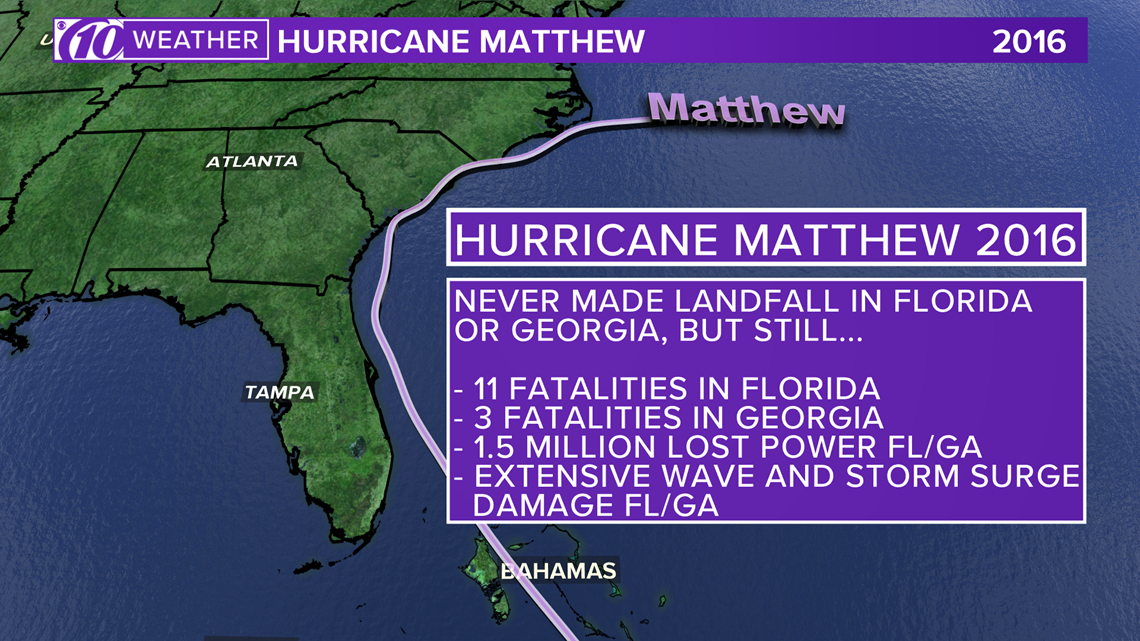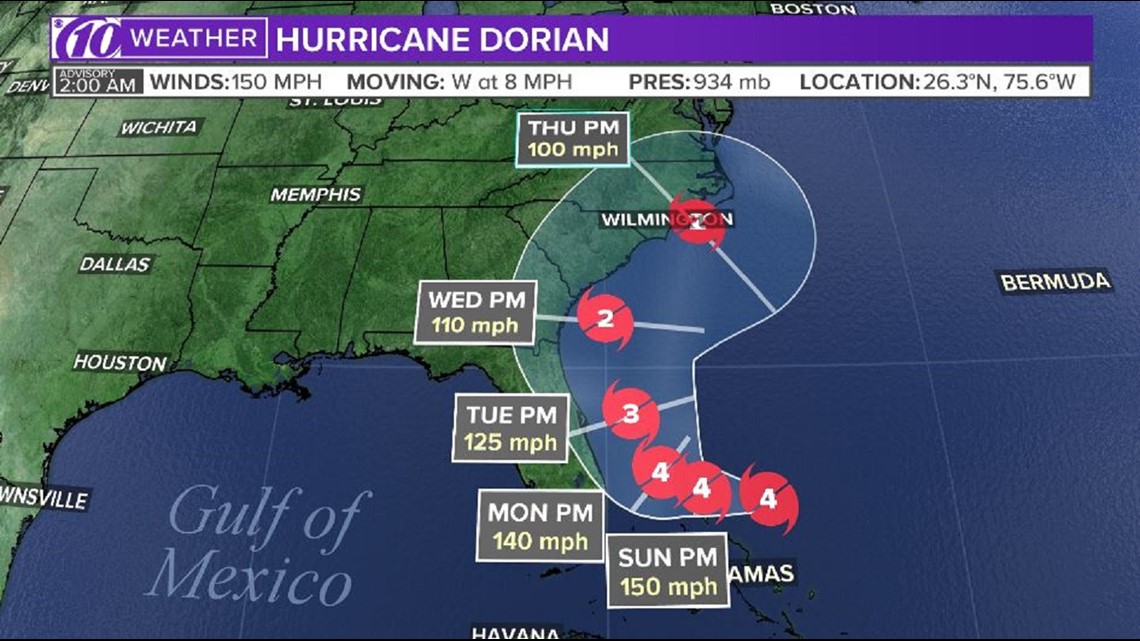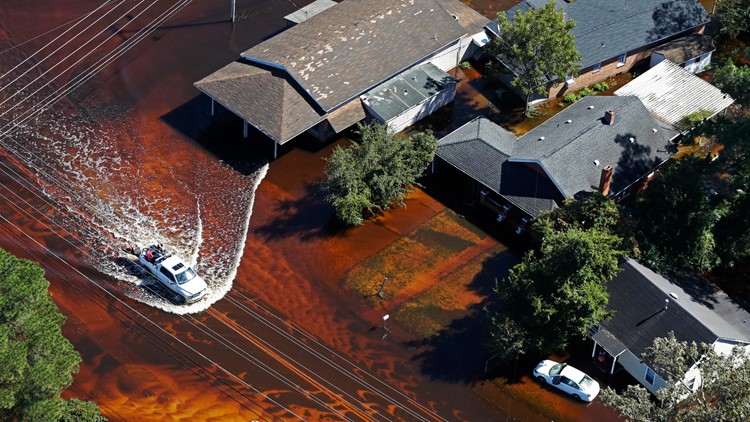ST. PETERSBURG, Fla. — Hurricane Dorian is still churning over the Atlantic, heading gradually toward the Bahamas where the impact could be disastrous.
As the storm ramps up – it has been classified as Category 4 since Friday, Aug. 30 – weather experts are drawing comparisons to a 2016 hurricane with a path similar to the one Dorian might follow.
Hurricane Matthew made headlines in late September 2016 when it formed off of the west coast of Africa and then moved westward for an eventual landfall along the coasts of southwestern Haiti, eastern Cuba and western Grand Bahama Island. The National Hurricane Center released a report in April 2017, linking the hurricane to 585 direct deaths, with more than 500 of those taking place in Haiti.
Those numbers made it the deadliest Atlantic hurricane since Hurricane Stan in 2005, according to the NHC.
The destruction caused by the hurricane, however, did not stop at those Caribbean islands. Hurricane Matthew ended up brushing against the Bahamas and then stayed about 30 miles offshore of Florida’s east coast, weakening to Category 3 by Oct. 7 and Category 2 the following day.


The most recent reports from NHC for 2019’s Hurricane Dorian indicate this storm could follow a track that also runs along the U.S. southeastern seaboard. As of Sunday, Sept. 1, many weather models show the storm staying just off the coast of Florida and not making landfall in the Sunshine State – but these models are not forecasts, and they often change with each update.
Regardless of the specific path, the storm could still pose dangers, even if it doesn’t make it all the way to land. Hurricane Matthew resulted in two direct fatalities in Florida in 2016. NHC says the first happened when a woman was killed after a tree fell on her camper in Crescent City. The second happened in DeLand when another woman died after a tree fell on her while she was outside feeding her animals.


Additionally, there were nine indirect deaths, caused by various side effects to the storm, including carbon monoxide poisoning by gas-powered generators and the loss of power to medical devices.
NHC says more than 1.2 million people lost power in Florida during Hurricane Matthew.
As the storm continued up the coast, two people died in Georgia, 29 died in total in the Carolinas and one person was swept out to sea and drowned in Virginia.
Hurricane Dorian is expected to make landfall Sunday in the Bahamas.
What other people are reading right now:
- Hurricane Dorian an 'extremely dangerous' Category 4 hurricane
- Live blog: The latest, need-to-know information on Hurricane Dorian
- 5 dead, 21 injured in second mass shooting in weeks in West Texas
- There've already been 1,000 reports of suspected price gouging in Florida as Dorian approaches
- Orlando International Airport will now stay open through Dorian
►Make it easy to keep up-to-date with more stories like this. Download the 10News app now.
Have a news tip? Email desk@wtsp.com, or visit our Facebook page or Twitter feed.



